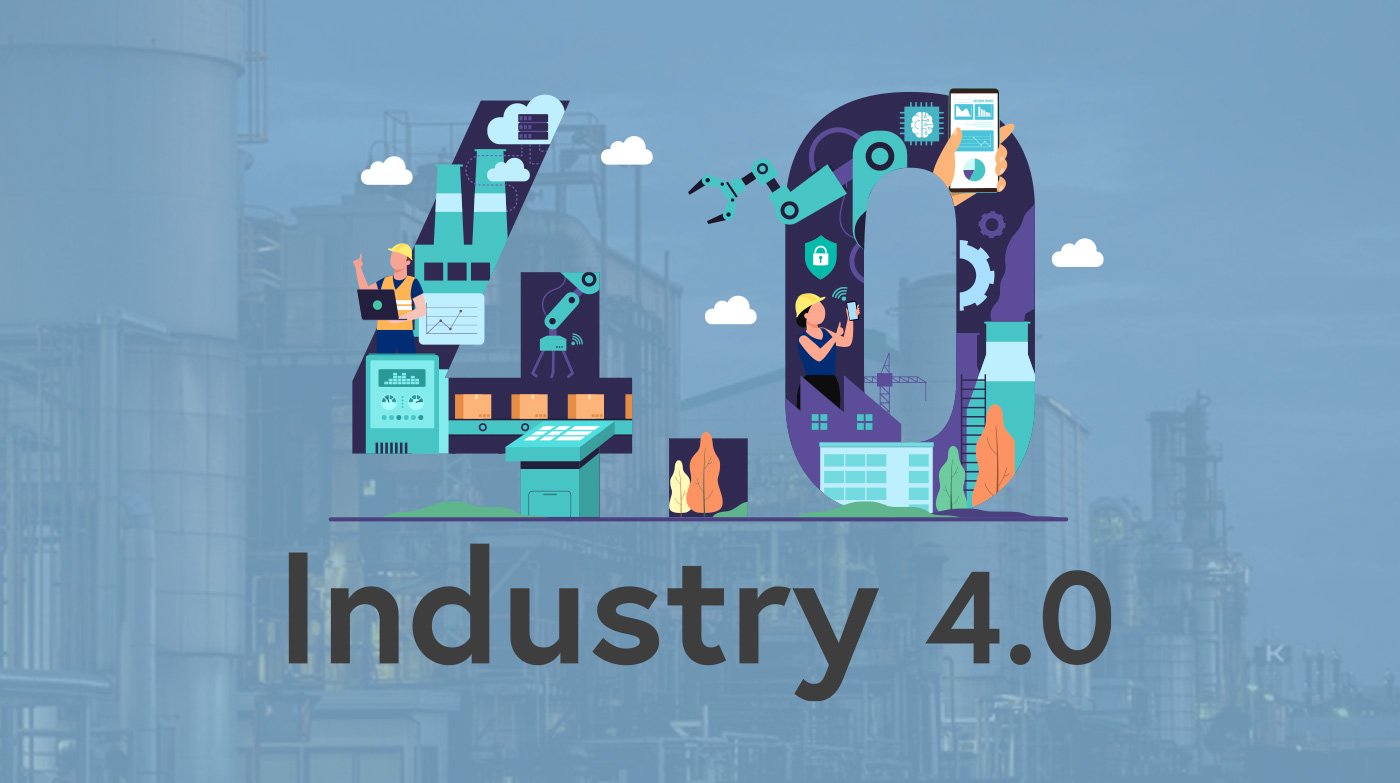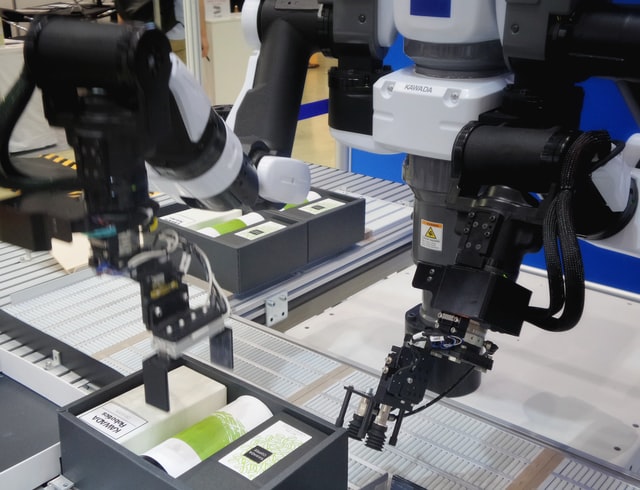Future of Industry 4.0 and Smart Factories Powered by AI

In Industry 4.0, robots and sensors replace human beings to become the heart of production line. They have embedded sensors that collect data from each process and then feed it back to a central system for analysis and decision-making in order to achieve a more efficient production line.
The most important aspect about Industry 4.0 is Artificial Intelligence which can help optimize the entire production process from development to manufacturing, testing, quality control and logistics management, etc., thus leading to smart factories powered by AI.
AI has the power to turn the manufacturing industry on its head. The automation of factories will have a positive impact on the environment, improve the safety of employees, and even create new jobs in an increasingly digital workplace.
Some of key points for the future of Industry 4.0
– Environmentally friendly: AI technologies can help improve environmental sustainability by reducing emissions and increasing energy efficiency.
– Safer working conditions: AI can be used to reduce accidents by improving safety protocols and removing humans from dangerous work environments.
– Secure products: With AI’s ability to collect data at every step of production, manufacturers will be able to provide products that are safer for consumers to use.
– Additional job opportunities: AI will enable manufacturers to become more agile and responsive. As a result, there will be more opportunities for skilled workers who can keep.
Table of Contents
ToggleWhat is Industry 4.0 and How is it Connected to Smart Factories?
Industry 4.0 is the fourth industrial revolution in the manufacturing industry. It integrates interconnected production technologies in a system of total production. The Industry 4.0 is being described as the “next big thing” in manufacturing, with the potential to create significant economic benefits for countries that are able to implement it successfully.
With the Industry 4.0 enables new products, services and business models through three key processes: intelligent automation, seamless networking of physical and digital systems, and data-driven insights that can be made available to all players involved in products’ life cycles. The future of manufacturing is slowly shifting into a more automated system that uses AI to help manufacturers survive. Some companies have already started using AI to increase efficiency in production by up to 50%. Others have used it to design models, optimize the design process, and improve quality control.
Futurists say that Industry 4.0 is set to bring about a dramatic change in how businesses operate as well as the life-style of consumers. This new era is expected to link up all aspects of production as well as supply chains globally through intelligent networks; this development would allow for greater efficiency, much quicker product development cycles and more sustainable manufacturing methods.
How the Implementation of AI in the Manufacturing Process Increases Productivity and Efficiency
AI implementation in the manufacturing process can help to make a company more competitive and efficient. Higher efficiency rates will benefit the company as they will need less time, money, and resources to produce their products. AI implementation also has benefits for employees as it improves productivity and decreases errors.
The productivity of a company can be increased with AI implementation because it is able to produce higher quality products more quickly. In the manufacturing process there are many steps that require human input or assistance, such as inspection or assembly of goods. With an AI system that is able to map out the entire process from start to finish there are fewer instances of human error which results in a higher quality product. The time saved during these tasks can be used by employees for other tasks such as improving customer service or developing new products.
Some manufacturers are even starting to use AI-powered robots for what they call “lights out” factories because they do not need any human input to run the production line.
What are the Advantages of an AI-Powered Factory?
There are many advantages of an AI-powered factory. For one, they have increased efficiency because automation is used to maximize the flow of goods. Second of all, they are environmentally friendly because they produce less waste. Last but not least, they are more economical because there are no staffing or training costs involved.
AI is expected to have a significant impact on the manufacturing industry. Manufacturing is one of the most transformed industries due to AI and automation. One of the major advantages of an AI-powered factory is that it can make production processes more efficient and more sustainable. This, in turn, will reduce production cost and increase profit margins.
The demand for manufactured goods has been increasing and so has the need for more factories. But with a shortage of qualified workers, automation is the only solution that will be able to meet the production requirements.
5 Benefits of an AI-Powered Factory for Manufacturers Today

An AI-powered factory is a highly automated and intelligent manufacturing facility. There are many benefits to using this type of factory, such as increased efficiency, better quality products, and more.
The benefits of an AI-powered factory are manifold. The technology can help decrease production costs by optimizing inputs and outputs, help companies save time on operations both manual and otherwise, improve on operations management, increase safety in the workplace by making sure equipment is running smoothly and more efficiently, increase efficiency with a reduced workload for factory workers, reduce labor intensity for workers with repetitive tasks through automation and more.
Below is a list of 5 points that manufacturers should take into consideration when building their AI-powered factory for the future:
- It can improve the efficiency: Factories with AI components can double their production efficiency with only a quarter of their current staff.
- It can cut costs: With less human involvement, it will also reduce overhead costs by 30%.
- It can create jobs: With an AI-powered factory, companies will now be able to offer higher wages as they will need high-skilled workers for data analysis and maintenance.
- It can reduce time to market: Because the machines are running 24/7, production time is reduced significantly.
- Manufacturing process optimization: Manufacturing process optimization (MPO) programs use AI and big data technology to optimize how materials flow and equipment is used in the factory, which, in turn, leads to better utilization and lower waste.
Conclusion:
AI systems have a lot to contribute to the manufacturing industry. The advancement of AI technologies and the methods of production have paved way for a new era in manufacturing – Industry 4.0.
Industry 4.0 is a manufacturing strategy that promotes automation and digitalization of the production process as well as digitization of company data and services, which is achieved by using AI systems like smart factories powered by AI. The ultimate goal is to create an environment where everything – from supply chain management over intelligence, control over IT – interacts with artificial intelligence.
AIAI-PoweredAutomationAutomotive IndustryFactoryIndustrySmart Factories
Aroound
aroound.com is a blog website with the aim to provide you the latest information around world. It helps you find the most relevant blogs on any topic.